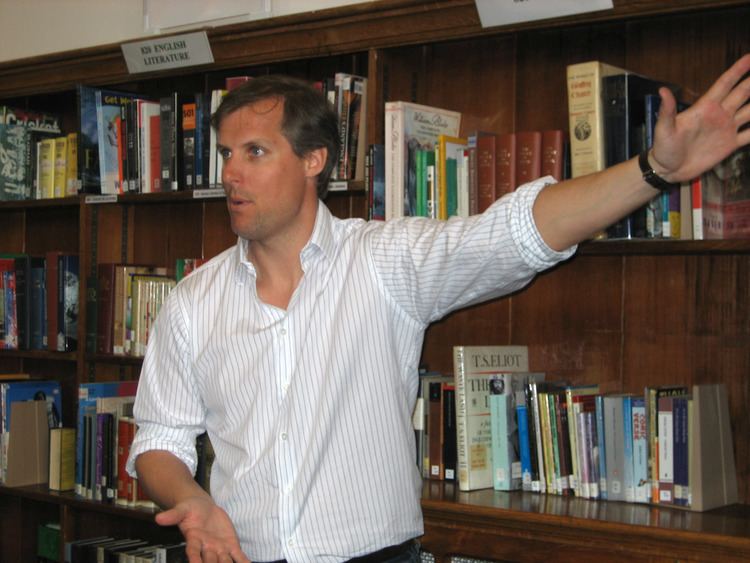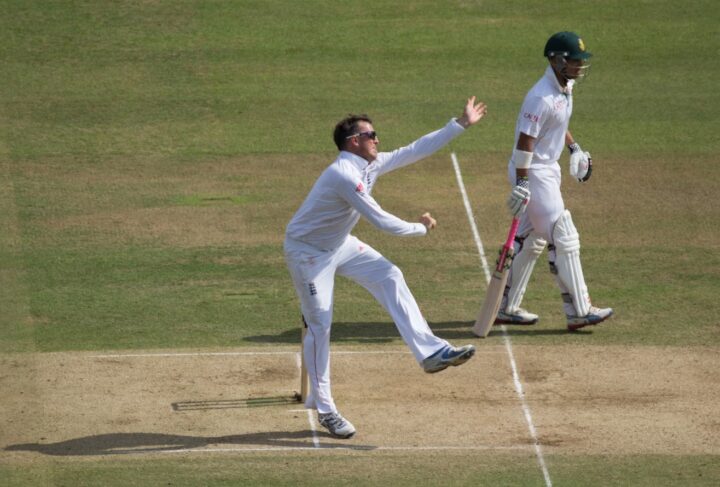England have won both Test series this summer. We won in South Africa too. So isn’t it about time we gave the much maligned Ed Smith some credit? Obviously I wasn’t the man to write this. I think his selections have occasionally been inspired (see Crawley, Zak) but mostly dimwitted (see Roy, Jennings, Denly). I also think his initial philosophy of picking white ball players (because they’ve done it in front of big IPL crowds) was daft as a brush and always bound to fail. England have actually improved since Smith’s done a complete U-turn and started picking specialists like Dom Sibley – something his critics begged him to do from the start.
However, you can’t argue with series results. And other than our defeat in New Zealand, plus our failure to win the Ashes at home for the first time since 2005, the teams selected by Smith have been pretty successful. So let’s give the man some credit. Michael Hall puts the case for Ed Smith’s defence below …
Ed Smith has in my view been an excellent national selector who has added to the expertise and leadership of England’s men’s cricket team. There I have said it. For anyone who has followed “The Full Toss Blog” for any period of time they will have noticed that James, el supremo of the blog, is probably not Ed Smith’s biggest fan.
For a selector Ed Smith attracts lots of attention particularly on Twitter where I have to admit that I follow and enjoy the parody account “Ed Smith – Maverick Genius”. The portrayal of Ed as an evil genius who is the intellectually arrogant and snobbish is very funny. It is generally gentle humour. The fun poked at Ed over his outfits, articles and sunglasses requires you to be a regular follower but like all parody seems to have an element of truth. George Dobell of Cricinfo and Elizabeth Ammon of The Times (“Legside Lizzy” on Twitter) also add to the general fun of this thesis.
As a writer I always enjoyed Ed Smith’s articles and his book “Playing Hard Ball: County Cricket and Big League Baseball” was excellent although I admit to being in that very small minority that enjoys and follows both County Cricket and Major League Baseball. Sometimes his articles in The Times and New Statesman could be obscure and take a few readings but he always seemed to be looking for a new angle – the Billy Beane of Cricket. Watch the excellent film Moneyball if you do not know who Billy Beane is.

Now all I actually know about Ed are the articles I have read and his commentary on TMS plus some podcasts. Since his appointment as a selector like everyone else I follow his selections with interest because we all think we would be brilliant at selecting the England cricket team. We all have a view.
Smith was appointed in April 2018 taking over from James Whitaker. The framework in which decisions are made and teams selected was implemented by Andrew Strauss from when he was Director of English Cricket. The framework with coach and captains adding to the selection of teams on the day of games seems to me to have been quite successful. The white ball teams regularly play very well and we did win the World Cup. I believe most of the credit for that goes to the coach and captain. The Test team results have been more mixed but in my view selection policy has improved in the followings ways:
1. Consistency. Players selected are given a proper chance to earn their place and are not discarded after two matches as they were constantly in the bad days of the 1980’s and 1990’s when we were often the joke team of world cricket. This is often an area where criticism is most severe (Buttler and Denly the recent targets) but I think it has helped the players selected gain confidence they will be given a fair chance and as a result we see confidence and performance improving.
2. He looks for players across a wide spectrum and will give those who have succeeded in one form at international level a chance in other areas whilst still bringing in the best, in whatever form, from domestic tournaments.
This second area has been a challenge for me. I am primarily a fan of Test Matches and the County Championship so I do not follow the white ball game as closely. Unfortunately the Championship has been marginalised in the last ten years, which is not Ed Smith’s fault. Therefore I have reluctantly come to the view that we cannot rely on that tournament alone for building our Test team. If you can get over this then it is logical that we should use white ball cricket as one source of potential players. Ben Stokes is the obvious outstanding achievement here but I accept there have been failures too. There always will be but again we cannot blame Ed Smith for that.
Smith does generally introduce interesting selections and some “wild cards” but on the whole I would say we have better teams now, incredible depth in seam bowling and promise in batting. I am not sure Ollie Pope would have been given his chance like he has under previous regimes. Ben Foakes will get his chance again at wicket keeper.
That is my case. Time to give the National Selector a pass and give him a chance. Now it is your chance to come back at me in comments below.
Michael Hall









“Ben Foakes will get his chance again at wicket keeper.”
Even allowing for Buttler’s recent success, Foakes’s early success at Test level and his success at first-class level should have meant that he didn’t have to wait and, if performance in one-day cricket does matter when it comes to picking the Test team as well as the one-day team, shouldn’t he have received more than one opportunity by now? In his sole ODI, his man of the match effort meant that England won against Ireland when they were in danger of losing. Yet he did not even get selected in the World Cup squad, from memory.
As an Australian, England’s recent success as a Test team has not surprised me. They had players that they could have picked earlier to help in the last Ashes series – Sibley instead of Roy, Pope instead of Bairstow or Buttler. They chose not to pick them during that series. In the matches they had played Pope before that series, they had batted him out of position. You are right to say that these type of decisions are not solely an Ed Smith invention but that doesn’t mean he hasn’t indulged in them from time to time. Even now, there are better choices that could be made – Leach for Bess, for example.
Consistency of selection is indeed a better virtue than inconsistency. But so is consistency to picking a team that reflects the type of game you are playing, not the game are best at playing. It took the pain of being unable to retain the Ashes at home for England to realise that and they might have had to realise it even sooner if India had the chance to bat first in 2018 as much as Australia would a year later.
I hate to say it, as I’d never give a Cambridge man, particularly not one who comes across as self-satisfied as Smith, a fair hearing, but he’s doing a great job.
True, England were one wicket away from losing the series to Pakistan (I can’t imagine that if Yasir had winkled out Woakes or Buttler early on we wouldn’t have lost the 1st Test, and hence the series) but Smith picked Woakes to bat at 7, and he came good (and then some).
I can’t criticise the Denly pick, either. He added a bit grit to an England side who were far too easy to roll over. I can’t think who else should have been there ahead of him. I was 100% against Buttler, and he had a great series against Pakistan. Plus previous regimes might well have dispensed with the services of Broad, and maybe even Anderson, as soon as they started to show signs of aging (ask Mr Hoggard all about that) whereas this lot have not only stuck with, but also coaxed even more out of them.
They STILL start series appallingly, but apart from that, all seems to be going well.
Consistency of selection has been the policy of the England selectors for about 10-15 years or longer. It was also a hallmark of Geoff Miller’s reign (and indeed that of Whitaker). The bad old days of England rotating players in and out of the side on a whim were over ages ago. I don’t think Smith deserves much credit for continuing what has generally been a successful strategy. I guess he could have abandoned the policy – that would’ve been really really funky – but it would have been seriously silly.
He brought cronyism to a new level. And Kent still seems to get his best attention! So I disagree about “the wide spectrum of players”. As for Ben Foakes for me it says everything about Smith’s poor powers of selection. Having a good wicket keeper who can stand up to the wicket would help the aspiring spinners enormously as well as the perspiring bowlers. For now there is a gap between England and the West Indies and England and Pakistan. But for games against India and Australia we will need our best sides. Nothing justifies giving Buttler the gloves. If he deserves his place for his batting in the Test side so be it. While Ed Smith was backing his white ball hunches England looked in the same plight as they have for years. Ed Smith didn’t pick Stokes, he inherited him. And Stokes has always been more than a white ball player as anyone from Durham will know. He showed that he could occupy the crease and accumulate as much as hitting out. He was put in a pigeon hole by the Press. The Denly saga was an indulgence. Pitiful really. Not Denly’s fault of course. But an insult to every County player who had a far better County average but never considered. Only favouritism counted. Ed Smith was too much the County Squire bestowing favours when only merit will do. Both Crawley and Pope are very young and will be challenged when international bowlers test their technique. There’s a long way to go. But both seem worth investing in. To keep Foakes waiting is a kind of pretentious idiocy. Such treatment can have bad consequences.
Really can’t argue with that assessment and I am a Kent man!
I can disagree with most of it apart from the strange pull of Kent!
You don’t appear in this post, Jackie, to know the meaning of cronyism (favouritism shown to old friends without regard for their qualifications is a definition that seemed fairly concise to me). Whether or not Smith is cronyist, you’re almost certaninly in no position to know, for the simple reason that you don’t know who his friends are. You seem to be confusing cronyism with having players that he likes to pick (which could be, and seems to me is, on purely cricketing grounds; all selectors and coaches have them), and continuing to do so longer than you think is wise. Cronyism isn’t just making a decision that you think is stupid!
As I’ve said here before, even the Kent thing is not as simple as picking his mates: Crawley had hardly started primary school when Smith left Kent, he played hardly any games with Denly, Billings was still at school–and in any case it’s well-documented that a reasonable part of the Kent dressing room were anything but mates with Smith (including Crawley’s batting mentor!)
While Smith was “backing his white-ball hunches”, England managed to thump the no. 1 team in the world, and win 3-0 in Sri Lanka–which, although against a fairly weak SL team, was still an unexpectedly good result.
The failure to pick Foakes is hardly a peculiarly Smith failing: whichever side of the debate you’re on, it’s a tendency to pick someone who’s seen as a better batsman even if their keeping isn’t particularly wonderful, rather than a better keeper whose batting might be poorer (or just poor!), that English cricket has had for decades. It’s no different to Miller picking Prior over Foster, Graveney picking Jones over Read, Illingworth picking Stewart over Russell, Bedser picking Knott over Taylor, or (so my dad tells me!) Gubby Allen picking Evans over Keith Andrew.
“The Denly saga” is an indulgence if you’re prepared simply to stand at the side and lob grenades into the fire. But who exactly would you have picked instead at that precise moment? Stoneman hadn’t shown any signs of being a particularly great test batsman, Cook had retired, Hameed (who quite a lot of people suggested) had had a season where he was still averaging 9 in August, Robson had had several rather uninspired seasons, Browne had had one very poor season and Lyth and Gubbins two, and Burns and Jennings were already in the team. I wouldn’t have picked him either (if I remember from my armchair selections, I’d have picked Daryl Mitchell), but it’s not the completely uncountenanceable selection you’re suggesting–and you have no evidence at all that it was favouritism apart from your own biases. There simply weren’t any decent candidates.
Spot on. The only thing I’d add would be we actually need a top class spinner. Butler’s inhability to stand up apart, Bess is hardly test class. I always thought he was a better bat than a bowler anyway at Somerset. Has to be Leach, with maybe Virdi as reserve, unless England can magic up someone new.
Director of cricket, coach and chairman of selectors has always seemed like one job too many to me. I’d scrap the last of these – whether the task went to the director or coach I don’t really care. This has been true for some time but in “these difficult times” (TM) it should be essential. However I suspect the ECB would see a goodly number of counties go bust before they abolished a senior managerial post.
P.S. A little more research on bowler workloads from England’s history. Alec Bedser bowled 100k f/c deliveries and missed most of his career in his 20s because of the war. A bowler who was a by-word for missing games because of injury, Chris Old, still managed to bowl about 10k more f/c and List A deliveries than Anderson. Of England’s three main seamers in the 1990s, Anderson has bowled about as much as Darren Gough but is still some way behind the amount Andy Caddick and Angus Fraser bowled (somewhat surprisingly in the case of the latter given his injury troubles).
Leach for Bess is a choice that most right-minded cricket followers would make.
Seeing Bess’s name in the Test XI makes me think that we’re in a world of make believe.
But he can bat a bit
Like so many selectors Smith has his favourites and Buttler was almost undroppable as long as he remained in situ. Clearly his prime project in showing that white ball cricketers can make the grade in tests. Now Buttler appears to be settling into his test batting role there is no longer an excuse to keep him behind the stumps, the key fielding position in any side. The rub is after the likes of Sibley, Burns and Crawley have been introduced with so much success why still keep persevering with bits and pieces men like Curran and Bess, neither of whom have shown any real test potential this summer. Buttler is no spring chicken and Pope is just starting out, so why not have the 2 competing for a spot. This keeps the balance of the side with Woakes and a keeper at 7 & 8 and your opening bowlers and a spinner at 9,10 and 11. Is this too much to ask of the selectors, probably.
I’d give Smith about a 7/10 over the last few months. He’s, perhaps belatedly, accepted that white ball players like Roy and Bairstow weren’t working out in Tests, and brought in those properly suited to the 5 day game. Sibley seemed a fairly obvious pick given his form in last year’s CC, but that’s still no guarantee of success (as the last 10-12 openers tried since Strauss retired shows), and Crawley was a real left field selection given his age and modest FC average, and Smith deserves credit for this.
I still think the jury’s out on Buttler as a Test player. Man of the series this time, but he needs to show it wasn’t just a flash in the pan and he can do it more consistently in Tests – and his keeping still leaves much to be desired.
I’m also still deeply unconvinced about Bess, and also doubt Sam Curran will ever be a threat outside England. Pace and quality spin wins us games abroad- Smith must wean himself off his obsession with all-rounders and pick specialists to give us the chance of taking 20 wickets in less responsive conditions overseas.
To be fair to Bairstow, he had a very good year as a Test batsman but then lost his technique when he got the opportunity to open in ODIs (something he’s done exceptionally well, of course).
Great comment HH. I agree with all of that I think. Re: Buttler he scored runs against Pakistan in 2018 and then struggled for the next couple of years so I agree that consistency is the key. It will be a challenge for him to keep scoring runs when he’s switching formats every month again. He’s clearly benefited from being able to focus on red ball this summer.
I think even Mr Ed has realised how difficult it is for players to adapt their games between red and white ball consistently. As you say I don’t think it’s a coincidence that Buttler’s success has coincided with his been able to concentrate on a single discipline this summer, though his keeping is still inadequate. Stokes is the only sure fire starter in all disciplines for us at present.
Standards have deteriorated so much, in South Africa and the West Indies, that in a few years time the only trophy these two have in their cabinets will be the one they contest between each other. In the case of the West indies it is obvious: they have drawn something like 3 series in the last 25 years on the road against the Big 8 (BD, Zim excluded) – and one them was a monsoon-fest in 2010. In the case of South Africa, take a look at the results, the margins of defeat, all the turmoil at the board level, political interference / and race-baiting, whenever the heat gets too much on the political class, never mind the actual real socio-political and socio-cultural issues (lack of access to cricket among the poor being one obvious issue, especially since there are transformation targets to be met).
So you beat teams that were decimated before a ball was bowled in the last three series. Financially and otherwise. As for beating South Africa in South Africa, even Sri Lanka did that (even without losing a Test), so it is as much as an achievement as Ed Smith finding his way to a supermarket and being able to buy a litre of milk. I have said it before, and I’ll say it again. Both England and New Zealand have stronger SA-born XIs that they could pick from their domestic cricket than South Africa can muster. Funny thing is that in the case of England the decimation of South Africa has actually being paid for by Sky.
Yet England still managed to lose two Tests to teams that would struggle to beat a second division county side. Glorious. As for Pakistan, other than Babar Azam, their batting is a complete mess, and they will need to sort that out.
After about 40 Tests of mostly failure with the bat (and behind the stumps), Buttler finally did something. That does not mean that in the previous 40 odd Tests he played, in which he mostly contributed negatively (or in the case of his hundred against India, it was completely irrelevant), while the better wicketkeeper is left out in the cold. You could easily argue that Buttler’s selection has cost England 4 or 5 Tests already. So he finally won England one. Uh, yeah, that is wonderful …
I have to admit that I wasn’t sure what to make of Pakistan. I guess two Test matches (plus one innings) wasn’t exactly enough time to judge. My overall impression, however, is that their bowling has gone backwards. Mohammad Abbas has a great record but I thought he looked bang average at the Ageas Bowl. And I couldn’t work out whether Shaheen Afridi reminded me more of Alan Mullally than anyone else. He looks decent but not exactly someone I’d worry about. Meanwhile, I really like the look of Naseem as a prospect but he’s clearly still that – an exciting prospect rather than the finished article. Yasir Shah is a good leg-spinner, and always has been, but his record abroad (especially outside Asia) isn’t good.
In the case of the Pakistan bowlers, Abbas did not have a great series, but we should bear in mind that Shaheen Afridi and Naseem Shah’s combined age is lower than James Anderson’s age. Naseem was barely three months old when James Anderson made his England Test debut (and yes, Anderson made his ODI debut before Naseem was born). So Abbas not being entirely on song. Add two rookies who have played 14 FC (non-Test) matches between them, and it is obvious that they were picked for their potential, rather than their record. I struggle to recall the last time (if ever) that England picked two such inexperienced players to play Tests for them in all matches of a series. And obviously conditions in England are not what they had ever experienced before.
Even Pakistan have trouble retaining their talent, as the money available to cricket is limited (no India series, no IPL for players; economy in all kinds of trouble). Amir announced retirement from Test cricket when he was barely 27 (when is the last time anyone voluntarily retired from Test cricket elsewhere at such a young age?).
Obviously, if Naseem stays healthy, Test cricket becomes financially attractive to play, and Pakistan get enough fixtures, he could end up taking all Anderson’s records. But we said the same thing about Amir 11 years ago (though McGrath then held the record for most wickets by a pacer), and he has not even gotten to the 150 wickets mark now.
Cricket selection is a complex challenge given the jump between domestic and international level. There is no chance to wrong an incorrect pick and its very hard to give players a game at test level or do any form of rotation as we have seen with broad this summer. I do think there should be more targeted picking of batsmen based on conditions such as say Jennings for Sibley in Sri Lanka.
That depends a little bit how you view the figures (not sure anyway why it would be Sibley rather than Burns you drop…)
Jennings’s average in Asia looks pretty good–as it will from a small sample size with two centuries. But his median scores there are 13 and 26…or around his general average. Put another way, he’s played ten test innings in Asia and failed to get to 2 in four of them–and he was also dropped on 0 during his first century if I recall, which would have taken his average down to not much more than 30 in Asia (and ledt one of his median scores as 1!)
It’s worth a thought, but it’s not the banker that some people (including, apparently, Smith) seem to think.